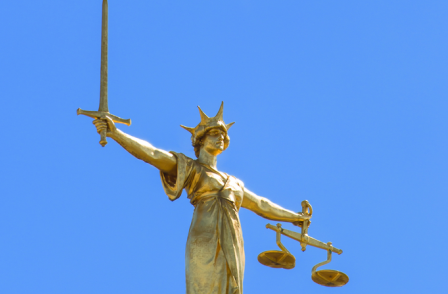
A District Judge has banned a reporter from attending a hearing at a Youth Court.
District Judge Julia Newton told Press Association journalist Harriet Line that she was not allowed to attend a hearing at which a 15-year-old girl was to appear on charges of assault and possessing an offensive weapon.
Line was initially told that she would be allowed in to the hearing, but a short time later the CPS solicitor emerged and told her that while she was correct in saying there was an exception for the press in having access to youth courts, the judge had heard from the defence and decided that in this instance the media would not be allowed in.
District Judge Newton allowed Line into court to make representation, but rejected them.
She declined to explain the reasons for barring her from the hearing, but said the defence had given reasons which meant she would not allow media access.
Line said that when she asked if the court was sitting in private, District Judge Newton said it was not, but the press were not permitted to attend.
A Crown Prosecution Service spokesman said: “Prosecutors may draw the court’s attention to relevant law in order to assist decision-making on media restrictions.
“While all parties were understandably concerned with the welfare of a vulnerable young defendant, by not challenging a defence application to bar media from the court we do not believe that CPS guidance was correctly applied in this case.”
The CPS guidance on reporting restrictions in cases involving children and young people says that prosecutors should be familiar with the circumstances where automatic reporting restrictions exist, along with the discretionary powers of the court to restrict reporting and to restrict public attendance at hearings; and draw the court’s attention to these provisions in open court, so the court can make appropriate orders and give advice to the media.
Media Lawyer comments: “The judge was wrong to exclude the Press Association journalist.
“Bona fide journalists are allowed into Youth Court hearings although virtually all other members of the public are banned, unless they get special permission to attend from the court.
“Section 47 (2) of the Children and Young Persons Act 1933 states that ‘No person shall be present at any sitting of a youth court except’ and then specifies that those who can attend include ‘bona fide representatives of newspapers or news agencies’.
“What the Act does not do is allow a court discretion to exclude any of those on the list of people who ‘shall be present’.”
Email pged@pressgazette.co.uk to point out mistakes, provide story tips or send in a letter for publication on our "Letters Page" blog
